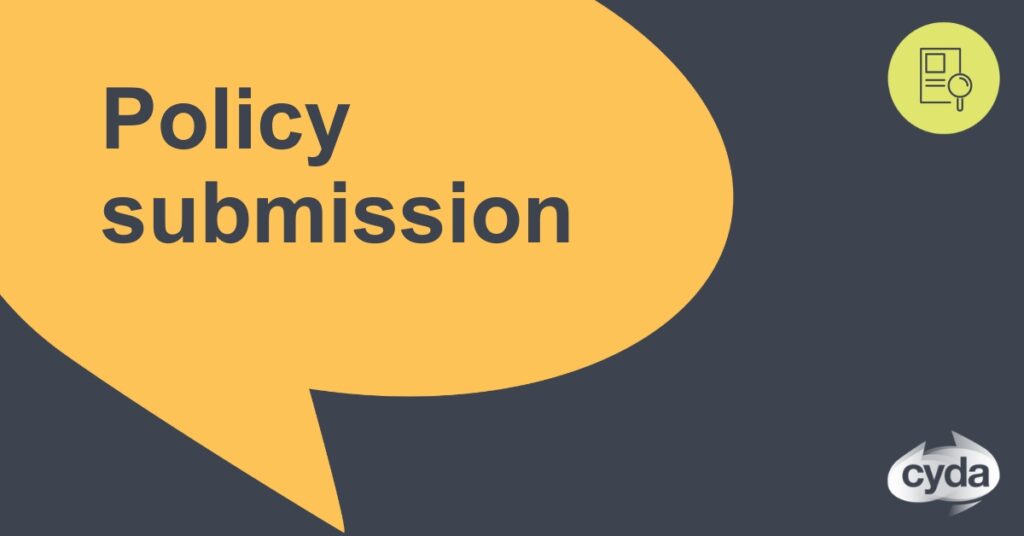The inequalities that drive the exclusion of children and young people from accessing quality education and ultimately an inclusive life, are complex and multi-dimensional.
CYDA’s community (families, caregivers, children and young people with disability) have told us about the inadequacy of targeted responses for children and young people spanning vaccinations, education, support services and a range of other Covid-19 impacts.
Children and young people with disability should, therefore, be protected from the developmental, social and economic scarring effects of both;
a) entrenched inequities in education and
b) the consequences of COVID-19.
To ensure that the depth and breadth of the experiences of Covid-19 and the impacts is fully understood, we argue that the Review should take a multi-dimensional approach by considering the broader social and educational context alongside addressing the particular impacts of the pandemic.
Download our full submission using the buttons above.


